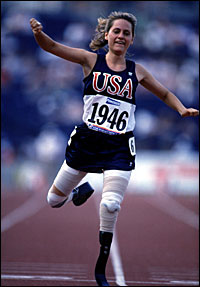Student plans move to Ecuador after graduation
By Sarah Perrott
Staff Reporter
Publication Date: 04/26/2010

Photo provided by Emily McHugh
Nursing student Emily McHugh during one of her service trips to Ecuador for the Timmy Foundation.
sponsored by
Editor’s note: This is the first of a five-part series highlighting students who are graduating from Purdue in May.
Nursing student Emily McHugh is known to friends as “Flow” – after Florence Nightingale, the Mother of Nursing.
The name fits the part, as McHugh is known as the woman who will do anything and always goes with the flow. Moving to Ecuador seems like nothing out of the ordinary for senior McHugh.
According to McHugh’s close friend Katie Collins, a senior in the School of Nursing, “Emily is a free spirit, always helping others, adventurous and down for anything – in a good way.”
Helping others is something McHugh strives for. In both 2007 and 2008, she went to Ecuador on service trips with the Timmy Foundation, an Indianapolis-based non-profit organization which sends brigades of college students to various countries to aid those needing medical attention. The foundation partners with other organizations as a way to maintain relationships with the local community while meeting their needs. As McHugh anticipates her May graduation, she is planning her move to Quito, Ecuador, to work with an Ecuadorian partner of the Timmy Organization, Tierra Nueva.
McHugh said she has a love of helping others, especially those needing medical attention in Ecuador.
“The first time I went to Ecuador I fell in love with the people,” said McHugh. “Then, I fell in love with Tierra Nueva and the medical work they were doing in such an impoverished country.”
While McHugh’s plans are not yet finalized, she has set a few goals for her future. She hopes to become fluent in Spanish. Her previous work in U.S. hospitals has made evident the need for nurses who can sufficiently communicate medical terms and conditions to comfort Spanish-speaking patients. Although McHugh is not completely fluent at this point in time, her Spanish is “workable” and she feels comfortable and ready to learn it.
McHugh sees herself living for two years in Ecuador, working for Tierra Nueva while forming relationships with the people she meets. She hopes to some day bring her knowledge, experience and newly learned vocabulary back to a hospital in the United States.
The excited senior seems ready for the adventure she’s planned. Her friends probably think she’s “crazy” and McHugh seemingly agrees with them. As a member of the Purdue Triathlon Club, McHugh competed in the U.S.A. National Triathlon competition, finishing first for Purdue University with a time of two hours and 46 minutes, for a 1.5km (0.9 mile) swim, 40km (24 mile) bike and 10km (6.2 mile) run. She admitted the craziest part of completing the Olympic-length triathlon was the 54 degree water temperature and the 48 degree air temperature.
Besides finishing five triathlons, McHugh has ran one full-length marathon and eight half-marathons, her latest race completed the Saturday morning of Grand Prix weekend. The goals she met while competing in various races proves McHugh can do anything she sets her mind on doing – especially if it involves something she is passionate about.
And passionate describes the attitude McHugh will bring to her work as a Medical Brigade Coordinator for Tierra Nueva. She will help maintain a connection between the Ecuador organization and organizations like the Timmy Foundation. McHugh hopes to find the time to work as a nurse in an Ecuadorian hospital as well.
“I want to be working with patients in Ecuador, improving their quality of life,” said McHugh.
While McHugh has spent her years in college building relationships with a group of close friends, they all know their adventurous friend will be happy doing what she loves in Ecuador.
“I think Emily going to Ecuador is great,” said Collins. “You couldn’t ask for a better thing to do with your life.”



